August wildfires on the Hawaiian island of Maui claimed approximately 100 lives and devastated the historic town of Lahaina. As of September 18, authorities have confirmed 97 deaths, with 31 people remaining missing.
The infernos left residents homeless and in desperate need of food and medicine. Quakers in Hawaii have supported fire survivors with monetary contributions, donations of menstrual supplies, and offers of temporary housing.
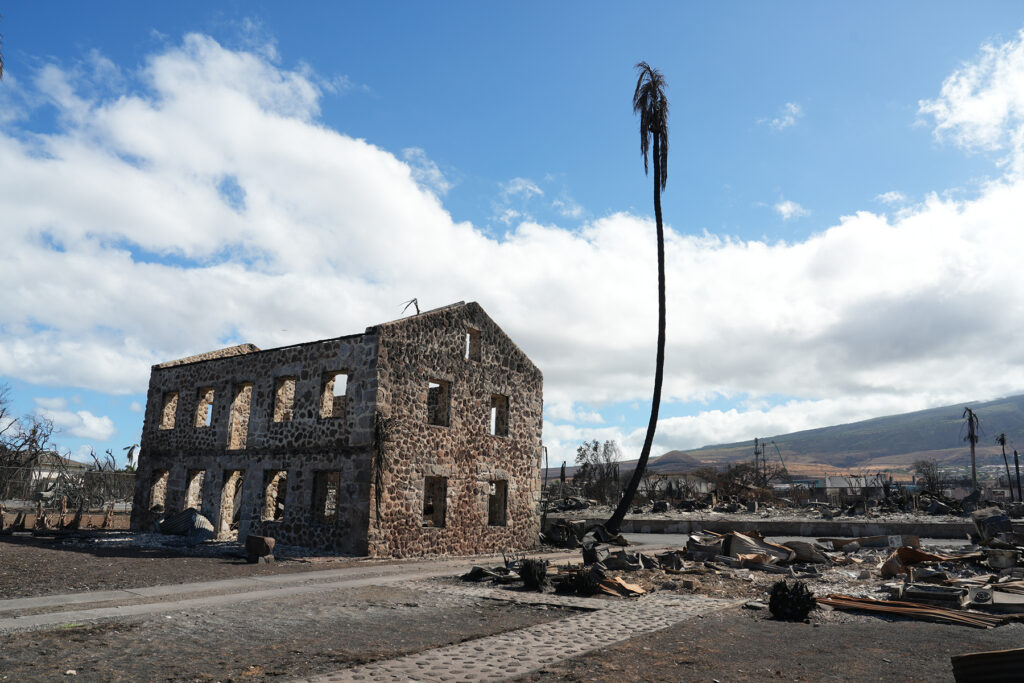
Photo by Dominick Del Vecchio/United States Department of Homeland Security.
Cori Sparks, an attender at Honolulu Meeting on the island of Oʻahu, coordinated the meeting’s effort to collect and assemble kits containing menstrual products for people displaced by the wildfires. The meeting donated 92 kits to fire victims. Each kit consisted of a gallon ziploc bag containing 12 day pads, five panty liners, five tampons, five wipes, and five night pads. Sparks’s effort built on her previous work with the Ma’i Movement, a Hawaii-based organization that seeks to provide tampons and pads to people who menstruate even if they cannot afford the products.
Providing menstrual items to fire survivors helps address one part of their list of needs. People often miss school or work due to fear of leaking menstrual blood because they cannot afford period products, according to Sparks. Many folks who menstruate have to choose between food and rent so they cannot afford to purchase menstrual products.
“Especially in a time where there’s so much insecurity, like if you don’t know where your next meal is coming from or where you’re going to sleep tonight, if we can just alleviate that one concern it makes me feel like that would bring a lot of peace of mind,” Sparks said.
Honolulu Meeting donated $2,000 to a central community fund to help fire survivors; $2,000 for menstrual supplies; and another $2,000 to support the Maui Humane Society in reconnecting pets with their humans, according to Bob Stauffer, a meeting member who is co-clerk of the meeting’s Peace and Social Concerns Committee.
Honolulu Meeting also offered to let fire survivors stay in the meetinghouse for several weeks, according to Marlene Coach-Eisenstein, a member of the meeting. No one has inquired about staying at the meetinghouse yet.
“A lot of them are still sleeping on the streets,” Coach-Eisenstein said of the fire survivors.
Fire survivors are caught in a double bind, according to Chung. They cannot find affordable housing on Maui, but they worry that if they leave, the government will not assist them in returning and eventually resettling on their home island because so much public funding is being used to support restoration of the tourist industry.
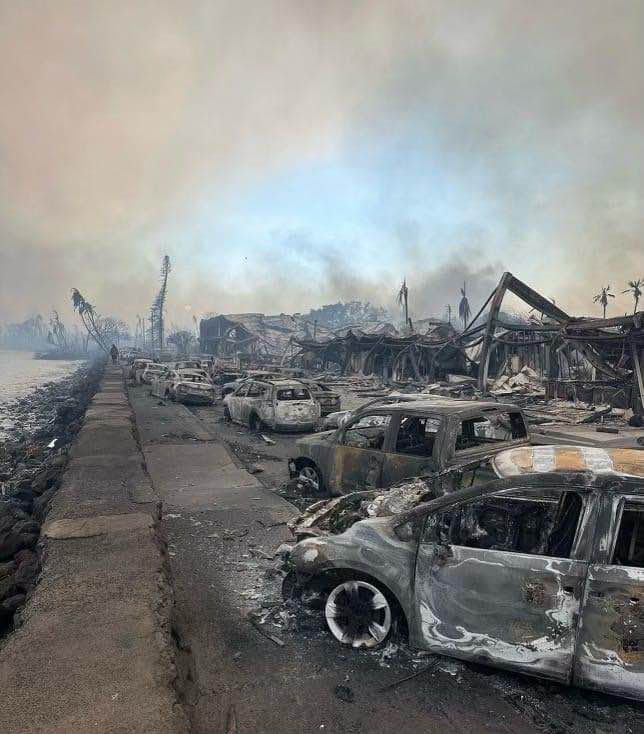
Photo by U.S. Civil Air Patrol.
Many Filipino immigrants who lost their houses in Lahaina also lost green cards and other immigration documents, according to John Patrick Murphy, a member of Honolulu Meeting who worships with the Maui Worship Group. Even before the fire, people in Maui were often priced out of the housing market because wealthy investors purchased second homes in the area and used them as short-term rentals catering to vacationers. Government regulations on lot size and square footage of houses might prevent homes from being rebuilt, according to Murphy. Many of the houses were initially built without permits.
The people suffering most from the fire’s impacts are brown and indigenous people who live in Lahaina. Many fire survivors were already in precarious financial straits because most jobs in Maui do not pay well, according to Coach-Eisentein. Most jobs in Oahu also do not pay well, according to Coach Eisenstein. Fire survivors need practical assistance finding work that pays a sustainable living.
People in Maui are angry about the fire, according to Coach-Eisenstein. Families have lost children in the blaze. People fleeing the conflagration jumped into the ocean, risking death by drowning. People died in their cars trying to escape on the single road leading in and out of the town. They burned to death or suffocated due to smoke inhalation.
Coach-Eisenstein noted that although the Red Cross helped fire survivors with money and medicine, one woman went for weeks without needed medication. Honolulu Meeting donated money to support the fire victims. Members and attenders are considering additional contributions both as individuals and as a meeting.
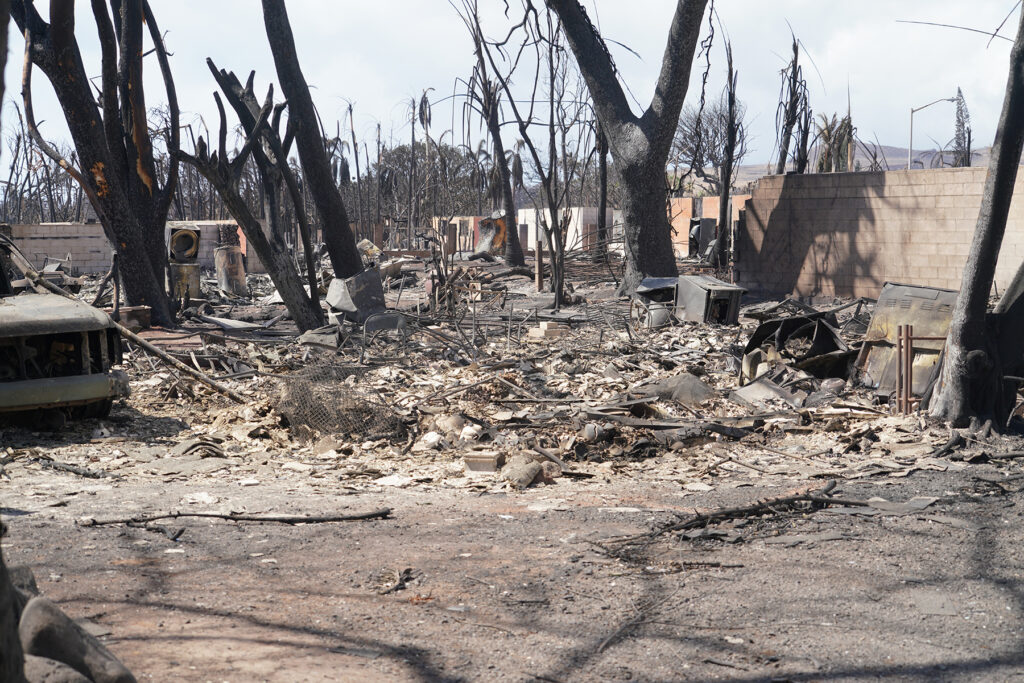
Photo by Master Sgt. Andrew Jackson/Hawaii National Guard.
Friends worship groups in Hawaii are often small, close-knit congregations. In some cases, individual Quakers in Hawaii with personal connections to those who have lost homes in the fires have suggested recipients for donations from members of the wider Quaker community. Brenda Chung, a member of Logan (Utah) Meeting who is an attender at the Kea’au Friends Worship Group in Hawaii, has close personal connections with three families whose homes were destroyed by the fires, through a school where she studies hula, a traditional Hawaiian dance. Liko Rogers and his wife, Sissy, are teachers who run a Hawaiian language school in Maui. The couple’s house burned in the fire as did the homes of their adult children. After the fire made their school unusable, the couple resumed instruction in a park while they search for a temporary building. Ekolu Lindsey, president of a land trust dedicated to conserving Hawaiian culture, and his family lost all they had in the fire. Similarly, Lesmond and Kalai Asuela lost their home, food, and clothing in the blaze.
The Maui Worship Group, which meets under the care of Honolulu Meeting, donated $800 to the United Way to assist fire survivors, according to Murphy.
Murphy seeks God’s presence as he mourns for the destruction of Lahaina. The Maui Worship Group meets weekly and worshipers sitting in the silence are waiting for the Light to show them what more to do to help fire survivors, according to Murphy.
“A way will open. I am positive about that,” Murphy said.


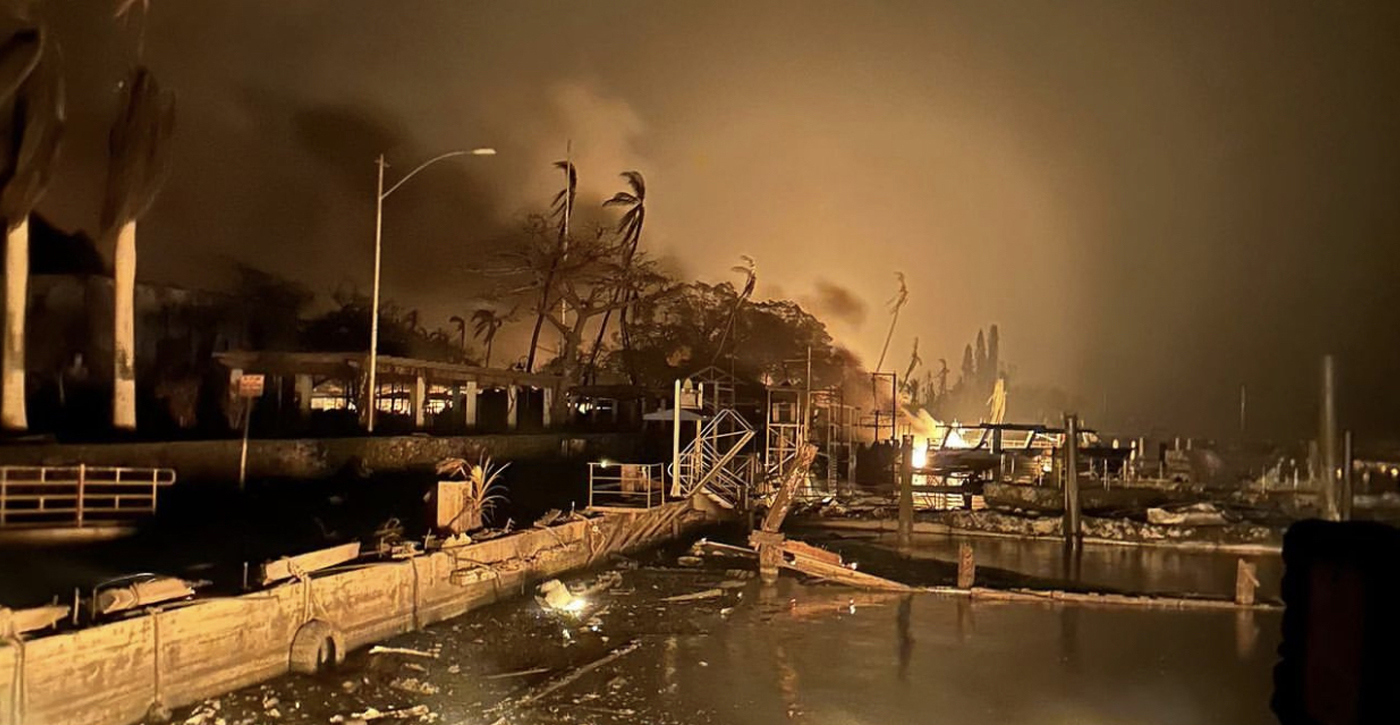
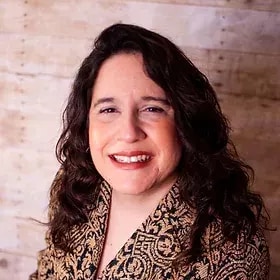
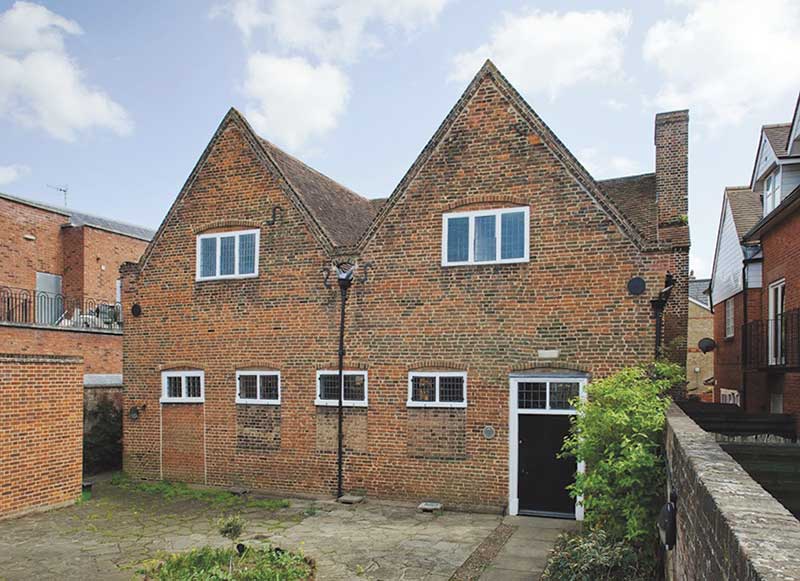
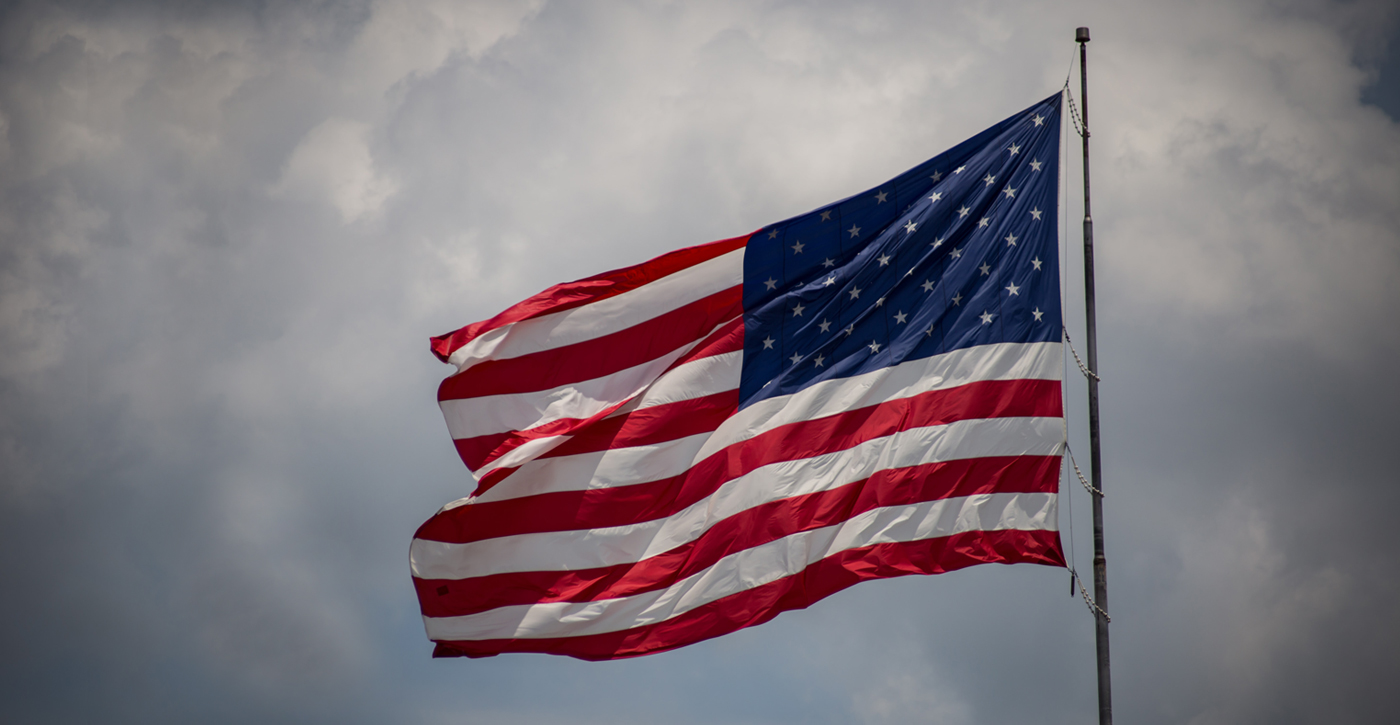
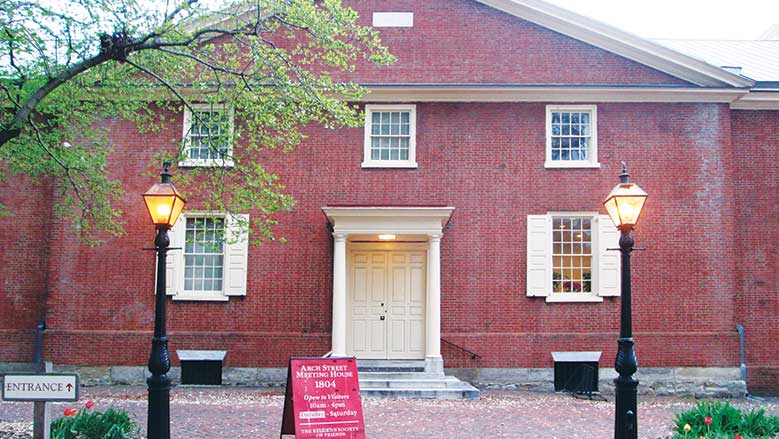
Comments on Friendsjournal.org may be used in the Forum of the print magazine and may be edited for length and clarity.